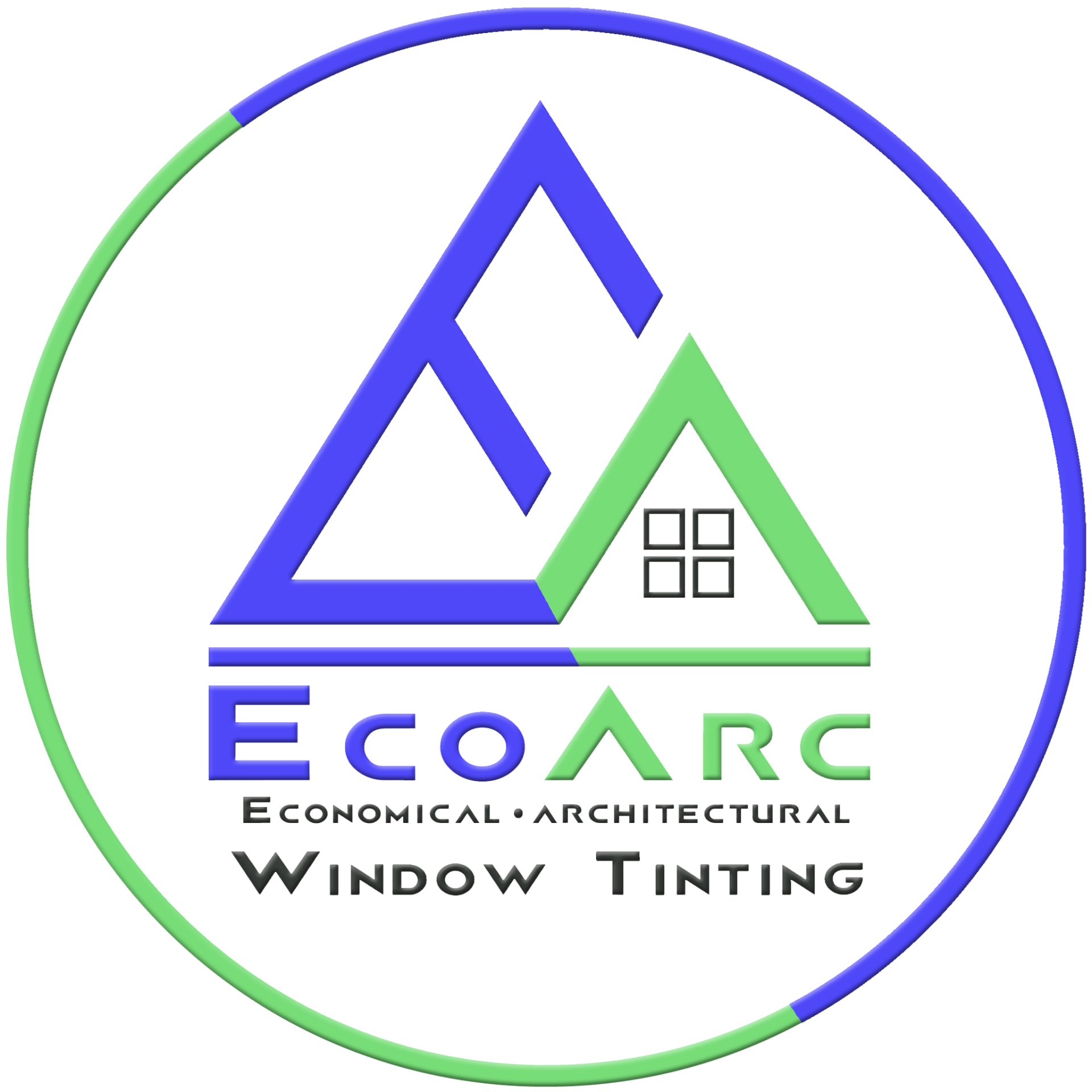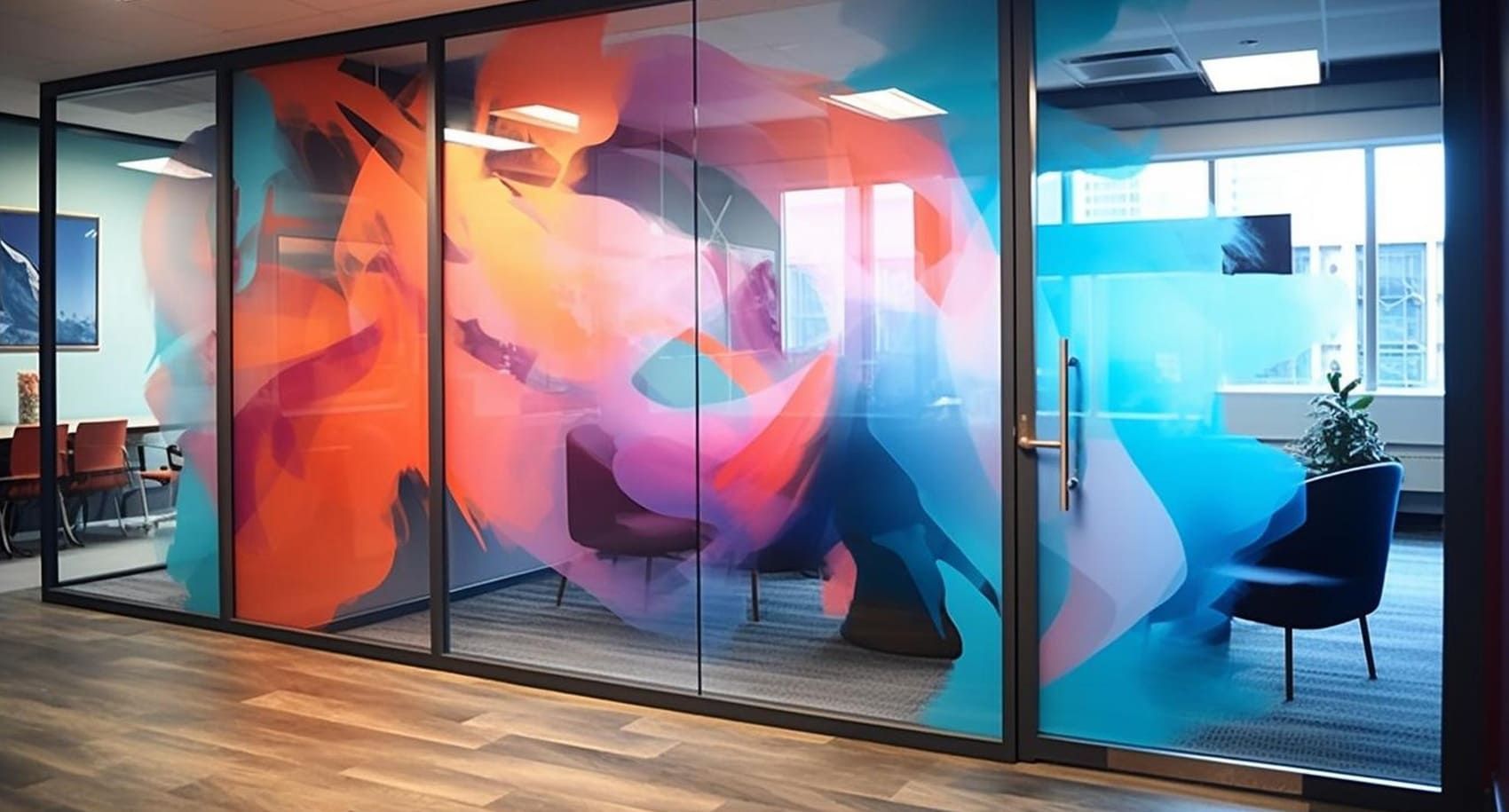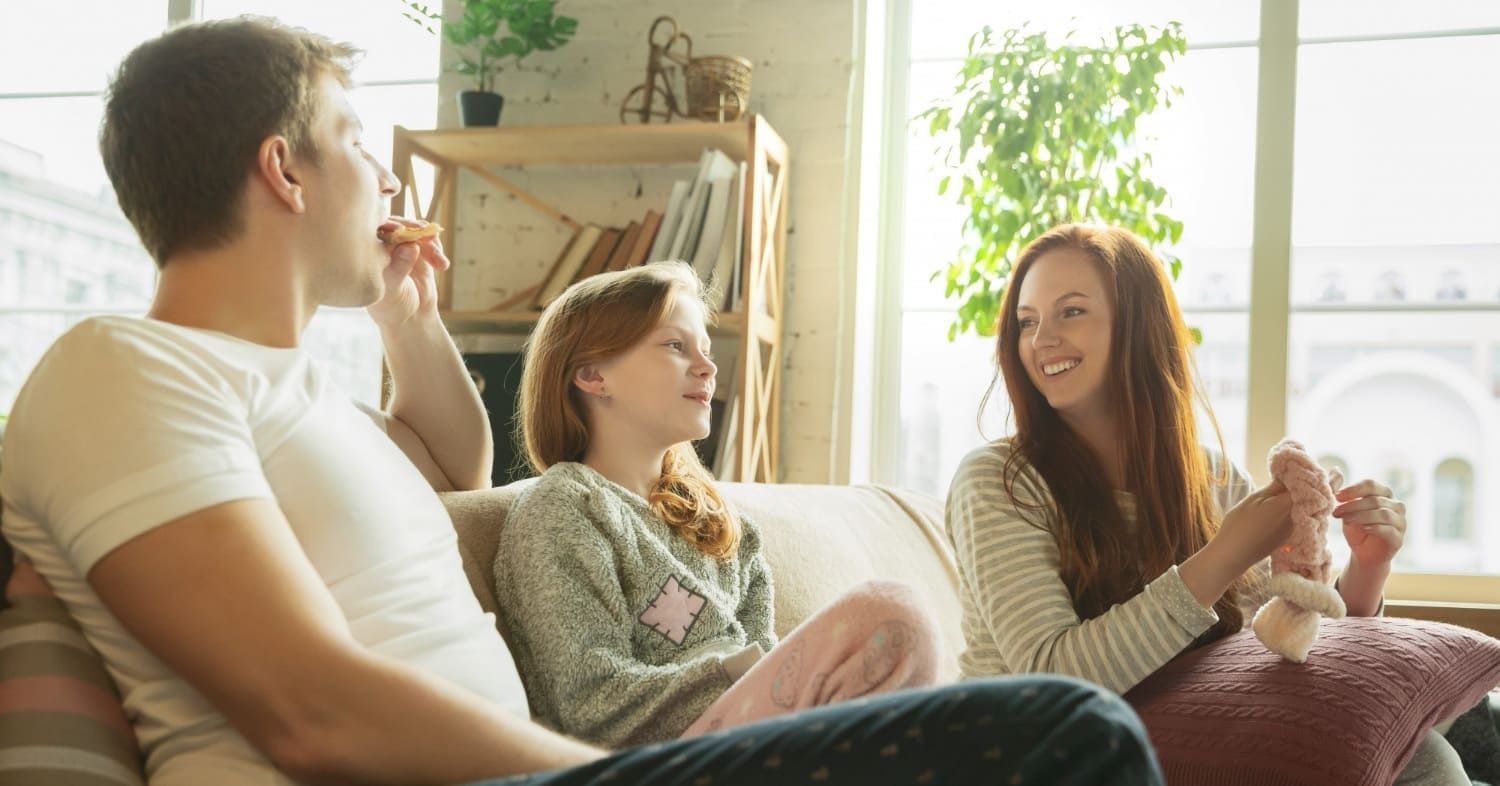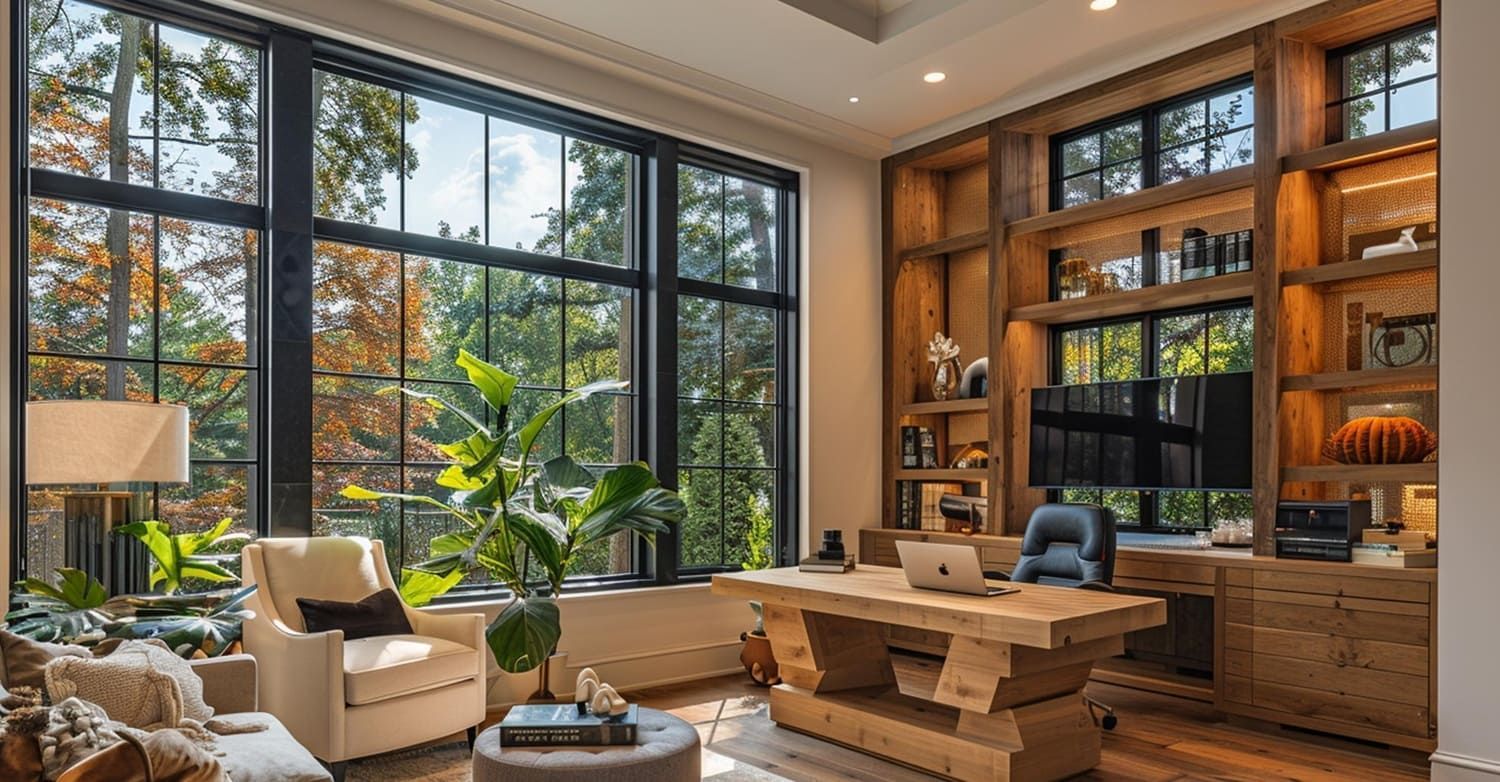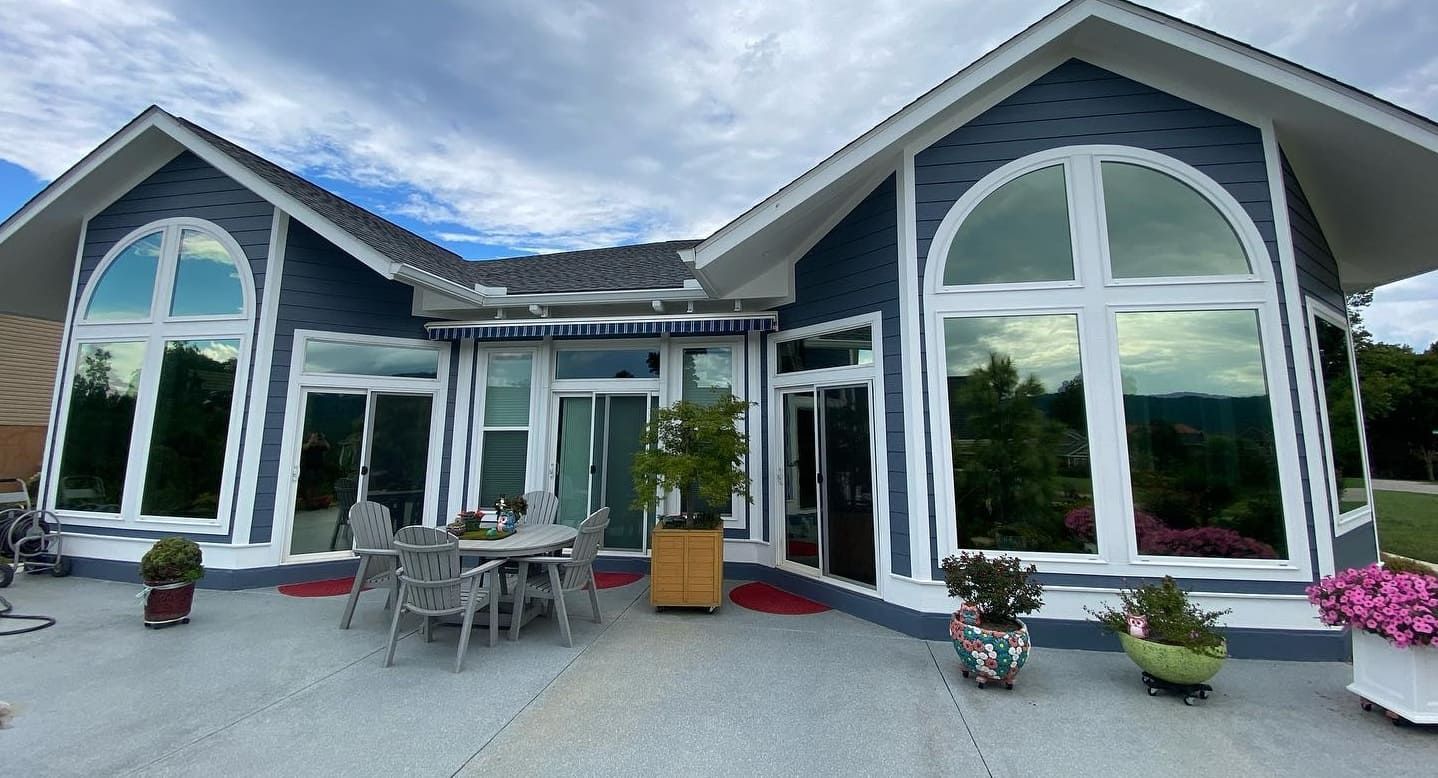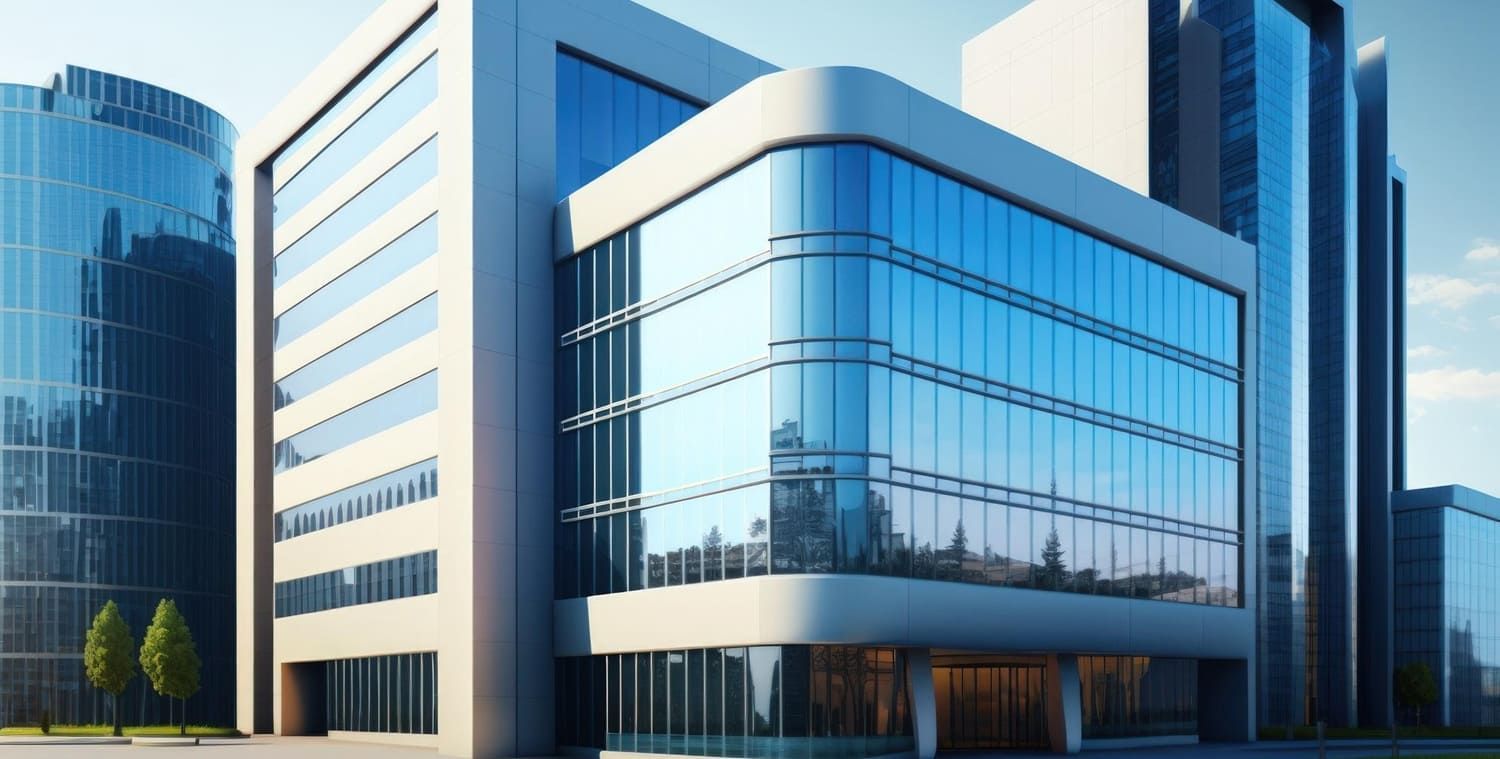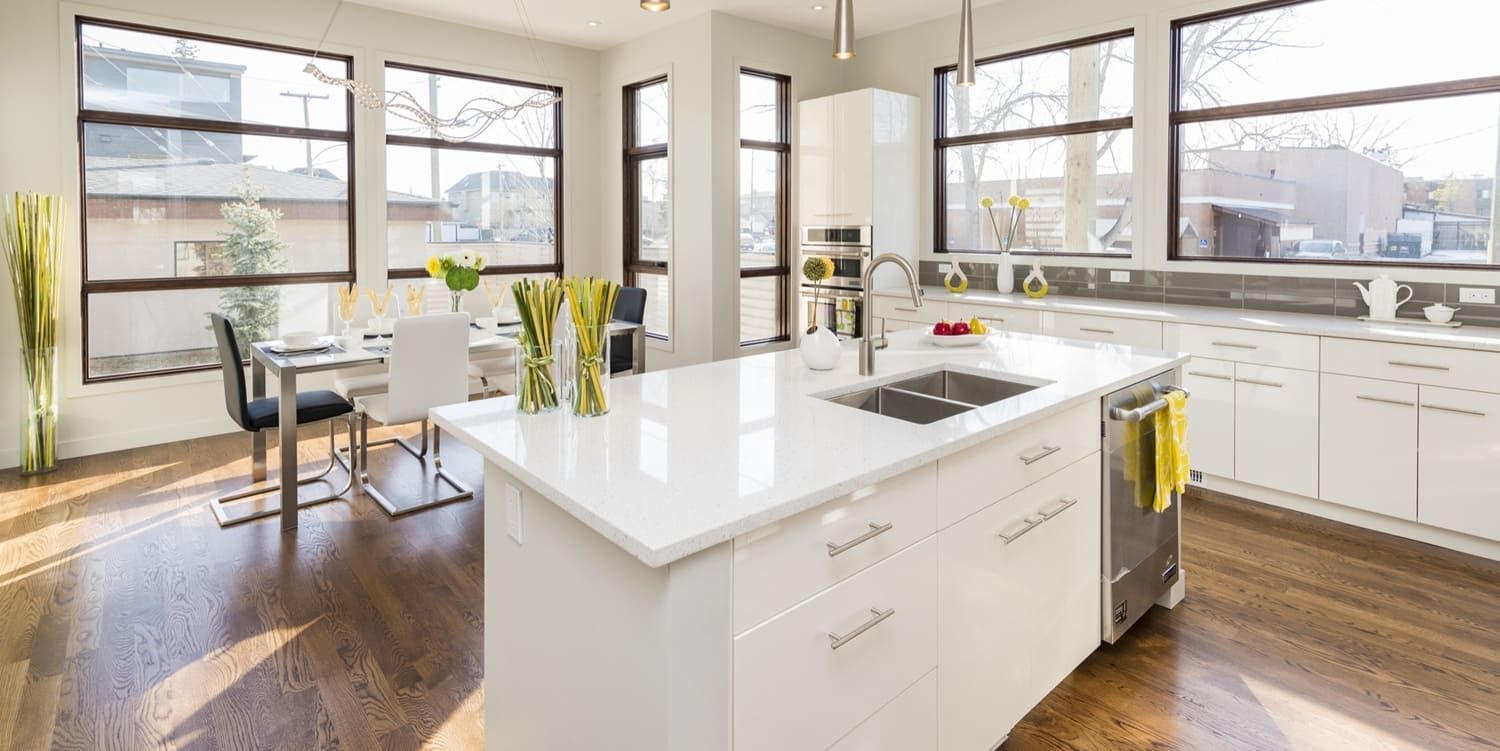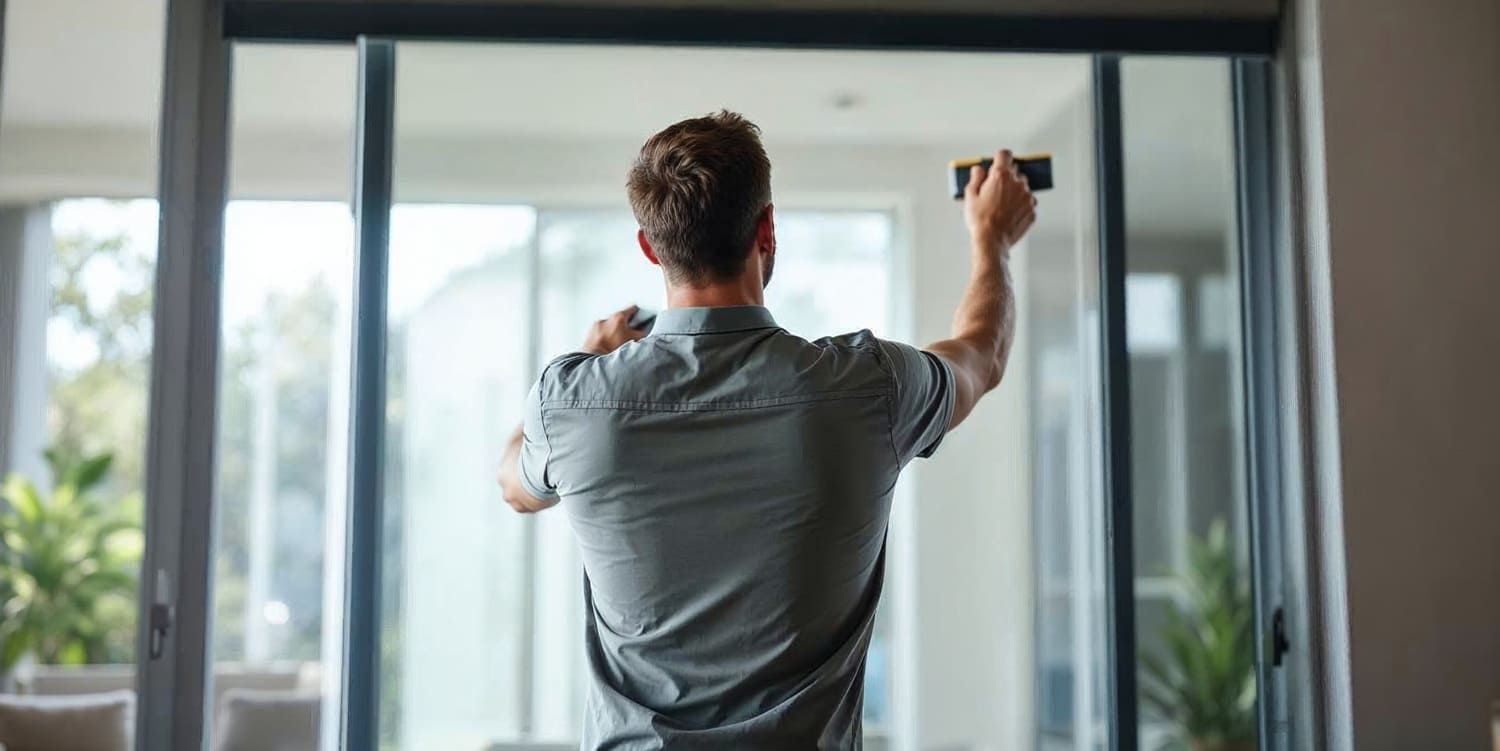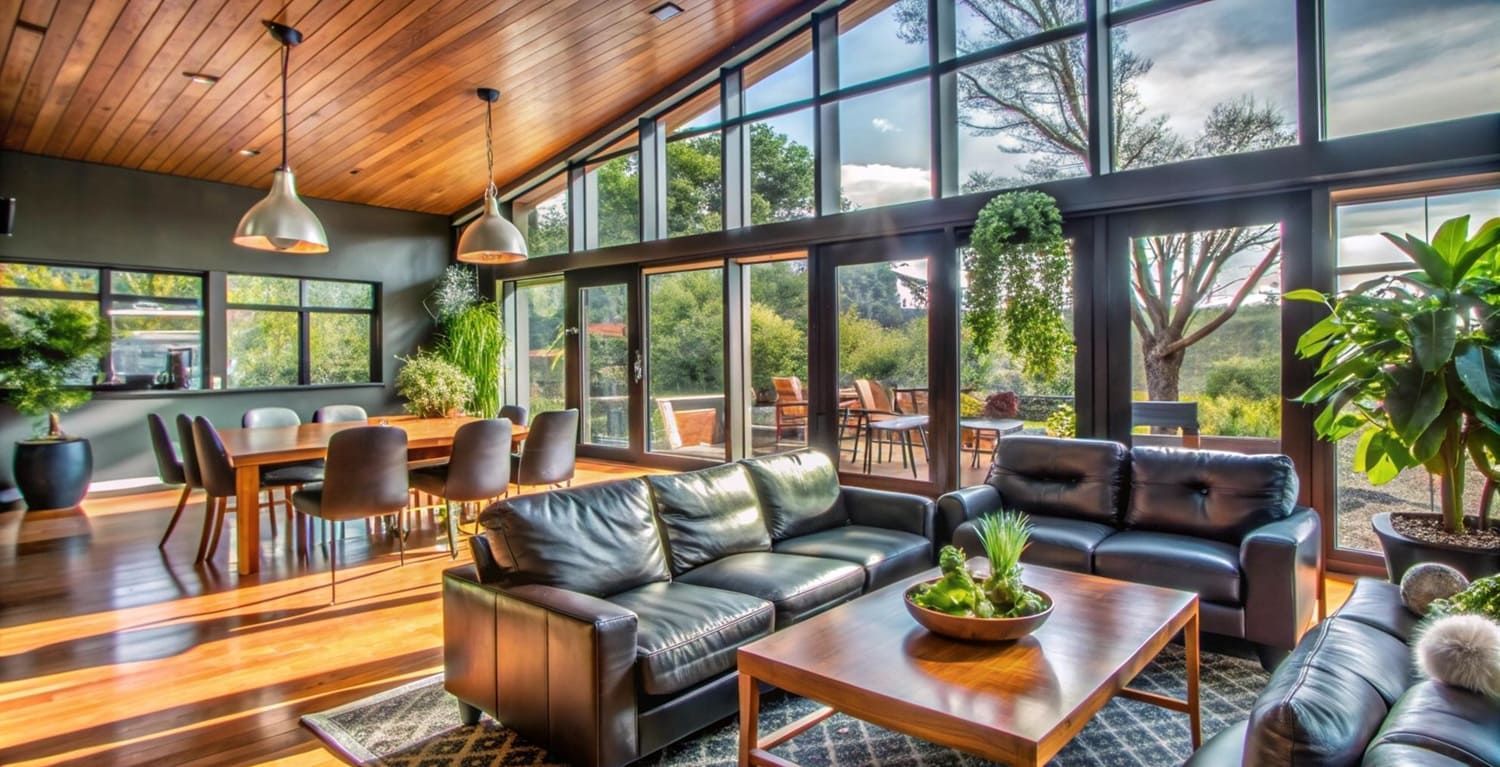Best Tint Options for Storefront Privacy
Transform your business's glass into a powerful tool for privacy, daylight management, and curb appeal with expert storefront window tinting. Discover how businesses across Asheville, Knoxville, Greenville, and Waynesville are enhancing comfort, security, energy efficiency, and brand aesthetics with the premier commercial privacy window film solutions. This comprehensive guide delves into the critical importance of privacy, compares frosted, reflective, blackout, decorative, and security films, outlines key selection factors like VLT and local regulations, and details professional installation and cost considerations. Throughout, you'll see how EcoArc Home & Office Window Tinting delivers bespoke commercial privacy window film solutions and how to easily request your complimentary estimate.
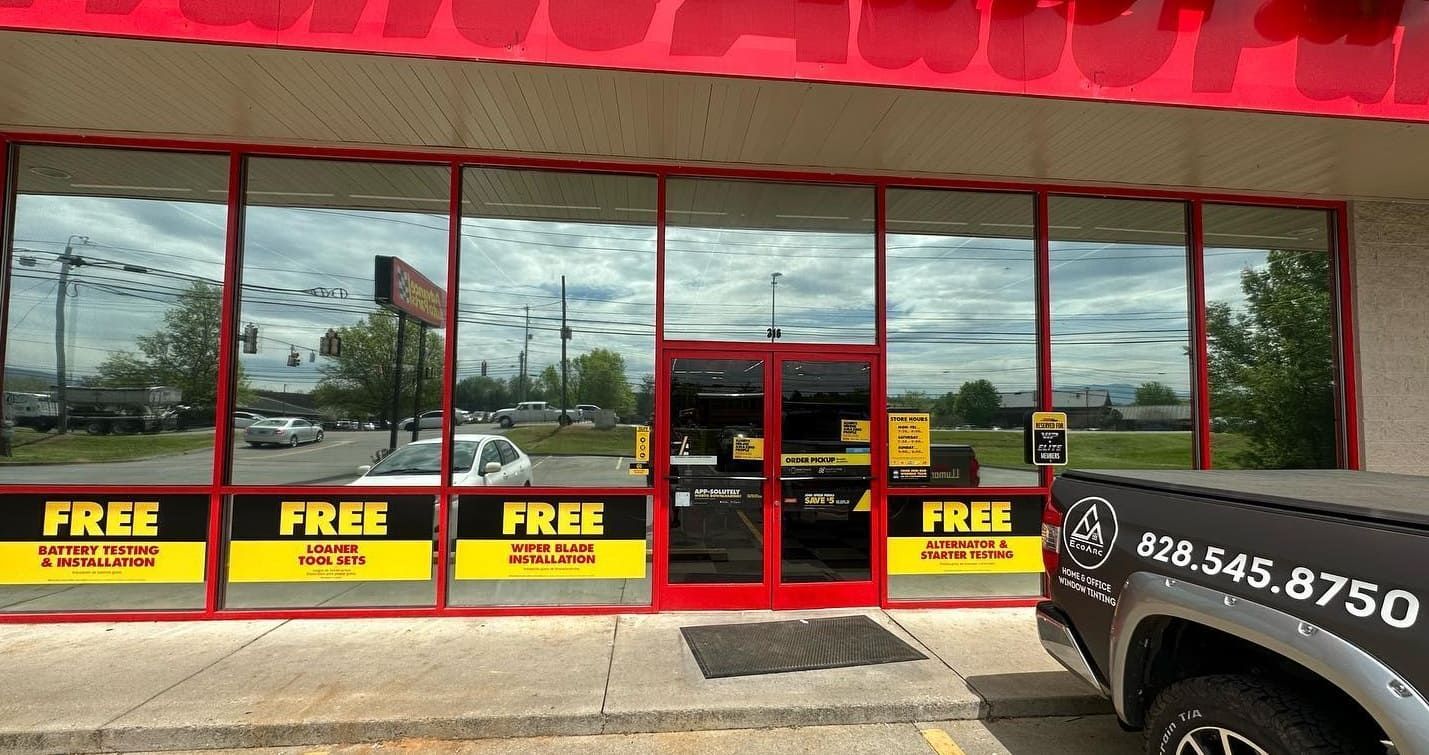
Why Prioritize Storefront Privacy for Your Business?
Storefront privacy acts as a crucial shield, safeguarding your interior operations from public view, cultivating customer confidence, and protecting valuable assets. By effectively managing visibility, you can minimize distractions, secure sensitive activities, and cultivate a more focused and inviting atmosphere for both your team and your clientele. Understanding these core advantages naturally leads us to the tangible benefits offered by privacy window tinting.
What Are the Core Advantages of Privacy Window Tinting?
Privacy window film offers a spectrum of benefits that extend far beyond simple concealment:
- Enhanced Confidentiality: Shield sensitive meetings, valuable merchandise, and critical documents from prying eyes.
- Reduced Glare & Improved Comfort: Block up to 60% of solar glare, significantly enhancing visual comfort and reducing eye strain for everyone inside.
- UV Protection & Asset Preservation: Filter over 99% of damaging UV rays, preventing interior fading and extending the lifespan of fixtures and displays.
- Energy Savings: Reflect heat and insulate glass, potentially slashing cooling costs by up to 30%.
Each of these advantages contributes to a more secure, comfortable, and cost-effective commercial environment, ultimately bolstering your brand's reputation and fostering employee well-being.
The Multifaceted Benefits of Privacy Window Tinting
Privacy window tinting provides a wealth of advantages for businesses, including heightened confidentiality, significant glare reduction, robust UV protection, and substantial energy savings. These benefits collectively foster a more secure, comfortable, and economically sound commercial setting, which in turn supports a stronger brand image and improved employee satisfaction.
- Smith, J., "The Advantages of Commercial Window Tinting" (2022)
This insightful research reinforces the article's points regarding the diverse benefits that privacy window tinting brings to commercial establishments.
How Do Privacy Films Bolster Security and Confidentiality?
Privacy films establish a visual deterrent against opportunistic theft and limit unwanted surveillance. When integrated with impact-resistant layers found in security-grade films, they significantly reinforce glass integrity, preventing shattering. This dual-action approach—obscuring sightlines while fortifying windows—enhances the safety of assets and personnel, while also upholding strict confidentiality protocols for crucial meetings or valuable inventory.
Can Privacy Films Boost Energy Efficiency and Occupant Comfort?
Absolutely. Opaque and reflective privacy films are engineered to reduce infrared heat gain by up to an impressive 97%, all while allowing natural light to permeate your space. This exceptional heat rejection significantly lessens the burden on your HVAC system, stabilizes interior temperatures, and elevates overall occupant comfort. Furthermore, the same thermal control that combats summer heat also provides valuable insulating benefits during cooler months, contributing to year-round energy efficiency.
How Does Window Tinting Elevate Branding and Aesthetic Appeal?
Decorative and patterned privacy films offer a unique opportunity to transform glass surfaces into dynamic branded canvases. From custom logos to sophisticated gradient textures, these films effectively reinforce corporate identity and retail style without sacrificing natural daylight. This seamless fusion of form and function not only enhances storefront appeal and sparks customer curiosity but also ensures that your privacy solutions align perfectly with your broader marketing objectives.
What Are the Top Window Tint Choices for Storefront Privacy?
The ideal film selection hinges on your specific requirements for visibility control, aesthetic design, and performance attributes. Here’s a breakdown of the leading storefront privacy films, each designed to meet distinct business needs.
How Does Frosted Window Film Deliver Sophisticated Daytime Privacy?
Frosted window film artfully diffuses incoming light through its translucent surface, striking a perfect balance between illumination and seclusion. With a visible light transmission (VLT) of 60–80%, it preserves interior brightness while effectively blocking direct sightlines. This makes it an exceptional choice for conference rooms, boutiques, and spa environments, blending understated sophistication with practical daylighting.
What Are the Pros and Cons of Reflective One-Way Window Film?
Reflective one-way film creates a striking mirror-like exterior during daylight hours, offering complete privacy from the outside when ambient light levels are higher outdoors than indoors. However, at night, interior lighting can reverse this effect, potentially revealing interior views.
| Film Type | Daytime Privacy | Nighttime Privacy | Energy Benefit | Primary Limitation |
|---|---|---|---|---|
| Reflective One-Way | Complete | Partial | Significant (up to 60%) | Requires careful management of interior lighting |
Reflective film is an excellent option for storefronts primarily operating during daylight hours. However, for evening operations, supplemental window treatments or additional films may be necessary to maintain complete confidentiality.
When Is Blackout or Whiteout Film the Best Choice for Absolute Privacy?
Blackout and whiteout films offer a 0% VLT, completely eliminating visibility from either side. These films are ideal for sensitive areas such as executive offices, secure storage rooms, or any space handling confidential client information. While they do block natural daylight, their complete visual obstruction guarantees unparalleled privacy and maximum security for high-risk applications.
How Can Decorative and Patterned Films Harmonize Style with Privacy?
Decorative films provide a versatile platform for customized patterns, textures, and color accents, all printed on durable polyester bases. They offer moderate privacy (VLT 30–70%) while significantly enhancing storefront branding. Businesses frequently utilize geometric motifs, frosted logos, or elegant gradient ombrés to create a unique ambiance and blend functional seclusion with captivating design, resulting in memorable customer experiences.
What Are the Advantages of Security Window Films with Integrated Privacy Features?
Security window films combine advanced privacy layers with robust shatter-resistant polyester, delivering a dual benefit of controlled sightlines and reinforced glass. By effectively absorbing impact and holding glass fragments together, these films act as a formidable barrier against forced entry and offer protection from debris during storms or accidents. They adeptly serve two critical objectives: maintaining discreet interiors and significantly enhancing occupant safety.
How Do You Select the Ideal Privacy Tint for Your Storefront?
Making the right choice involves a careful evaluation of technical specifications, aesthetic aspirations, performance requirements, and adherence to local regulations. Consider each of these factors to ensure your film selection perfectly aligns with your operational goals.
What Is Visible Light Transmission (VLT) and Why Is It Important?
Visible Light Transmission (VLT) is a key metric that quantifies the percentage of visible light passing through a window film. A lower VLT results in a darker appearance and greater privacy, while a higher VLT allows more natural daylight to enter. Understanding VLT is crucial for businesses aiming to balance natural illumination with effective sightline control, helping you determine the optimal shading levels for your specific storefront layout.
How Should Your Aesthetic Goals Guide Your Film Selection?
Your choices should be driven by your corporate branding, architectural style, and desired customer perception. Transparent privacy films maintain the clarity of your windows, frosted films offer a diffused, modern aesthetic, and decorative films provide opportunities for bespoke graphics. Aligning your film finishes with your interior décor, signage colors, and overall storefront design ensures a cohesive and impactful visual identity.
What Energy Efficiency and UV Protection Factors Should You Prioritize?
Beyond VLT, carefully evaluate the infrared rejection and UV filtering capabilities of potential films. Films rated for up to 97% infrared rejection offer superior thermal control, while those providing 99% UV blockage effectively prevent material degradation and protect occupants from harmful UV exposure. Opting for versatile films that address energy savings, glare reduction, and UV defense maximizes your long-term operational value.
How Do Security Needs Influence Your Window Film Choice?
Environments demanding high security necessitate thicker polyester layers, stronger adhesives, and certified tear-resistance. Films designed for forced-entry protection often carry an ANSI Class 3 or Class 4 rating. If both confidentiality and safety are paramount, prioritize security films that integrate opaque or reflective privacy cores with proven impact resistance.
What Local Regulations Impact Commercial Window Tinting in Western NC, East TN, and Upstate SC?
Regional codes often dictate the maximum allowable reflectivity and minimum VLT for commercial building facades. For instance, storefronts in Asheville and Greenville typically must maintain a minimum VLT of 35%, while Knoxville has specific limits on reflectance, often around 25%. It is essential to confirm local ordinance requirements before installation to ensure full compliance and avoid potential permit issues.
Understanding VLT and Local Regulations
Visible Light Transmission (VLT) is a critical consideration when selecting window film, as it measures the proportion of light that passes through the film. Local regulations, such as those observed in Asheville and Greenville, frequently stipulate minimum VLT percentages for commercial storefronts to ensure adherence to codes and prevent permit complications.
- Doe, A., "Commercial Window Tinting Guidelines" (2023)
This citation provides valuable context on the significance of VLT and the necessity of consulting local regulations when making decisions about window tinting options.
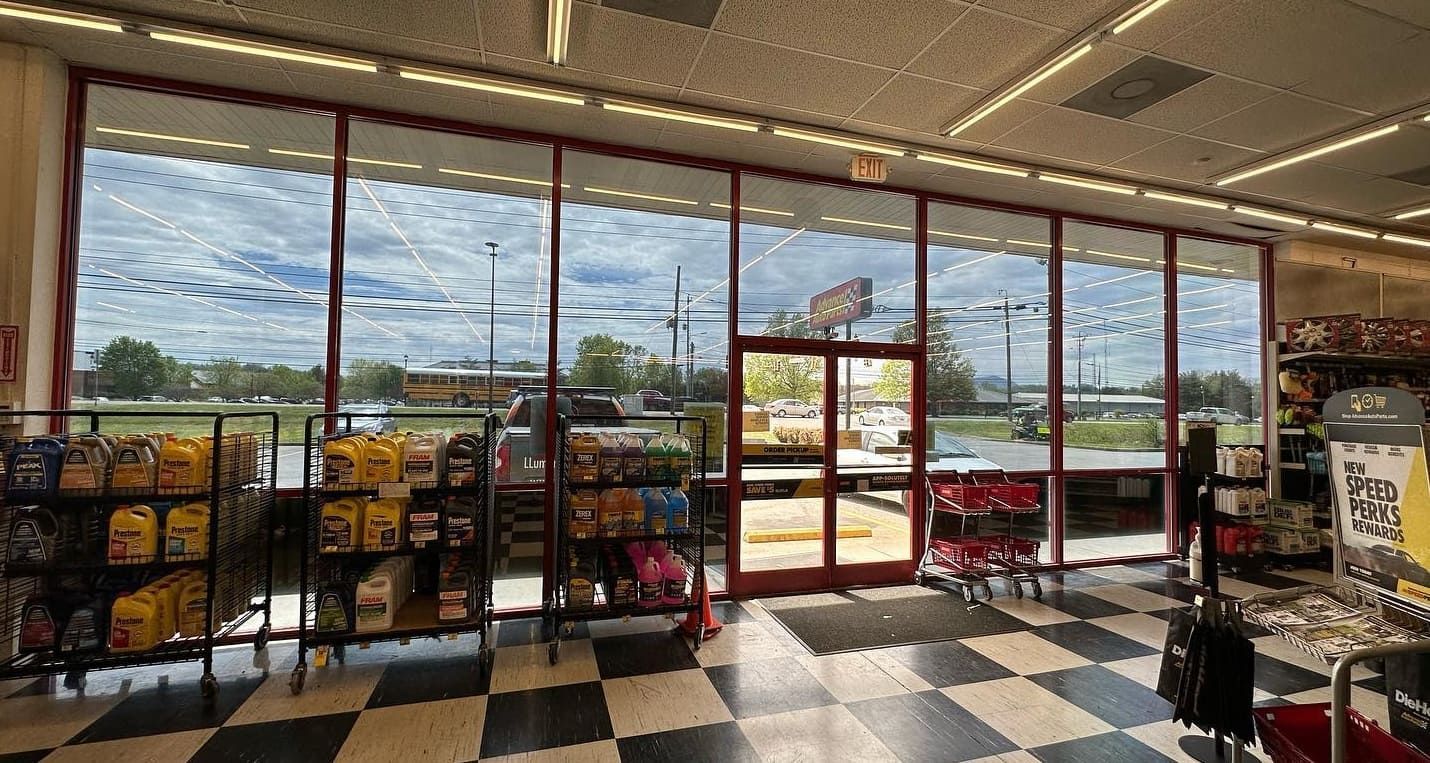
What Does Professional Storefront Window Tint Installation Entail?
Professional installation is a meticulous process encompassing thorough surface preparation, precise measurement, expert film application, and a comprehensive post-installation inspection. This rigorous approach guarantees optimal performance, extended durability, and adherence to manufacturer warranties.
Why Is Professional Installation Crucial for Long-Term Performance?
Certified installers meticulously remove all surface contaminants, apply film without creases or imperfections, and meticulously finish edges to prevent peeling. Proper squeegee techniques eliminate air bubbles, and controlled curing processes ensure stable, long-lasting adhesion. These critical steps significantly enhance durability, minimize maintenance requirements, and uphold manufacturer warranties throughout the film’s lifespan.
Which Areas Does EcoArc Home & Office Window Tinting Serve for Commercial Window Tinting?
EcoArc Home & Office Window Tinting proudly offers specialized commercial privacy window film installation services throughout Western North Carolina, East Tennessee, and Upstate South Carolina. Our dedicated service regions include:
- Asheville, NC
- Knoxville, TN
- Greenville, SC
- Waynesville, NC
Our local expertise ensures that every project is executed with a deep understanding of regional climate considerations and specific municipal regulations.
How Does EcoArc Home & Office Window Tinting Guarantee Customized Privacy Solutions?
Through detailed on-site consultations and advanced digital mock-ups, EcoArc Home & Office Window Tinting meticulously tailors film type, opacity, and design to complement each storefront’s unique architecture and branding. By leveraging strong partnerships with leading manufacturers like LLumar, we source the optimal film formulations to meet your specific performance requirements, aesthetic goals, and budgetary constraints.
What Is the Investment for Commercial Privacy Window Tinting?
The cost of commercial privacy window film installation is influenced by several factors, including the specific film selected, the dimensions of the windows, the complexity of the installation process, and any additional features like custom decorative printing.
What Factors Impact the Cost of Storefront Privacy Films?
- Film Type: Premium options such as ceramic or one-way reflective films typically carry a higher price point than standard polyester films.
- Coverage Area: Larger glass surfaces naturally increase both material and labor expenses.
- Design Customization: Incorporating decorative patterns or custom brand logos will incur additional printing fees.
- Removal and Preparation: The presence of existing films or contaminated surfaces will require extra preparation time and cost.
A clear understanding of these factors allows for accurate and effective project budgeting.
What Is the Typical Price Range for Commercial Window Tinting?
Commercial storefront privacy film installation generally ranges from $7 to $20 per square foot. Standard frosted films tend to fall at the lower end of this spectrum, while specialty reflective or security films represent the premium tier. The final pricing will reflect the chosen film grade, the complexity of the installation, and any necessary permits.
How Can Businesses Calculate the ROI of Privacy Window Film Installation?
The return on investment (ROI) for privacy window film is realized through tangible benefits such as energy savings, reduced interior fading, and enhanced security. By estimating annual HVAC cost reductions (which can be as high as 30%) and comparing these savings against the material preservation benefits over time, businesses often find that the film expenses are recouped within 1 to 3 years. Further accelerating this payback are factors like lower maintenance costs and potential discounts on insurance premiums.
What Are Common Inquiries About Storefront Privacy Window Tinting?
Below, you'll find concise, expert-backed answers to frequently asked questions regarding commercial privacy films.
What Is the Optimal Window Film for Privacy in Commercial Environments?
Frosted film is a popular choice for achieving moderate daytime privacy, while reflective one-way films are ideal for high-visibility retail facades. For absolute concealment, blackout or whiteout films provide complete privacy. Security films offer a valuable combination of privacy and impact resistance, making them suitable for sensitive environments.
Is One-Way Reflective Film Effective for Nighttime Privacy?
The effectiveness of one-way reflective film is dependent on higher exterior light levels. When interior lighting surpasses outdoor levels, its mirror-like effect diminishes. To ensure consistent night privacy, it's advisable to pair reflective film with window treatments or opt for dual-vision films designed for reliable performance day and night.
What Are the Darkest Legal Tints Permitted for Storefronts?
In most jurisdictions within Western NC, East TN, and Upstate SC, the minimum allowable VLT for commercial storefronts is 35 percent. Installing darker films than permitted risks code violations and may necessitate special permits in areas with more lenient regulations.
How Long Does Window Tint Installation Typically Take?
A standard storefront project usually requires between 1 to 3 days to complete, depending on the number of windows and the overall complexity of the installation. The timeline includes preparation, film application, and edge sealing, with full adhesion and curing typically achieved within 48 to 72 hours.
Can Privacy Films Effectively Reduce Glare and UV Damage?
Yes, they can. By filtering visible light and blocking over 99% of harmful UV rays, privacy films significantly reduce glare and protect interior furnishings, merchandise, and occupants from UV-induced damage and fading.
How Are Emerging Trends Influencing Storefront Privacy Window Films?
Innovations in film technology and a growing emphasis on sustainable practices are continually reshaping the landscape of privacy solutions for modern commerce.
What Are Smart Tinting Technologies and Their Privacy Advantages?
Smart or “electrochromic” films offer the unique ability to adjust their opacity instantly via a switch or in response to sunlight. These dynamic films provide on-demand privacy control, sophisticated energy management capabilities, and modern facades that adapt seamlessly to changing environmental conditions and operational schedules.
How Are Eco-Friendly and Sustainable Films Impacting the Market?
Low-emissivity (Low-E) and plant-based polyester films are actively reducing carbon footprints through the use of renewable materials and enhanced thermal efficiency. These sustainable options not only deliver privacy and energy savings but also align perfectly with green building certifications and corporate sustainability initiatives.
What New Design Options Are Available for Decorative Privacy Films?
Recent advancements include sophisticated gradient patterns, elegant metallic inks, and subtle low-profile micro-etching techniques that produce premium finishes without compromising privacy. Businesses now have the capability to integrate translucency, captivating color transitions, and high-resolution branded imagery, effectively transforming storefront glass into a dynamic marketing display.
Storefront privacy film transforms ordinary glass into a versatile asset that significantly enhances security, comfort, energy efficiency, and brand expression. By carefully selecting the appropriate film type—whether frosted, reflective, blackout, decorative, or security—and ensuring professional installation by the experts at EcoArc Home & Office Window Tinting, businesses throughout Western North Carolina, East Tennessee, and Upstate South Carolina can optimize their storefronts for both peak performance and sophisticated style. Contact us today to request your complimentary estimate and discover how tailored privacy solutions can elevate your commercial space.
